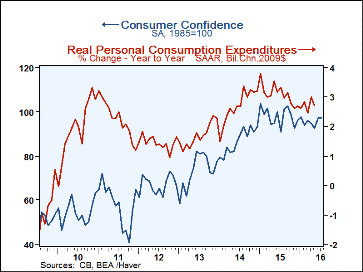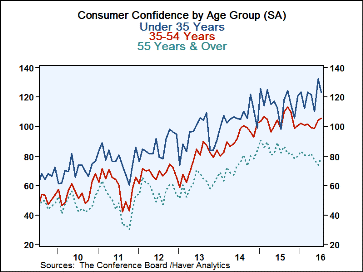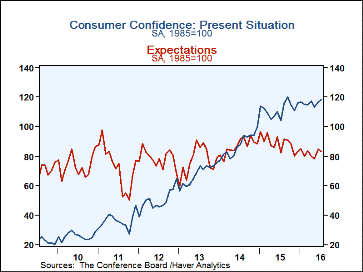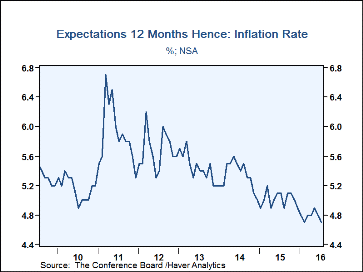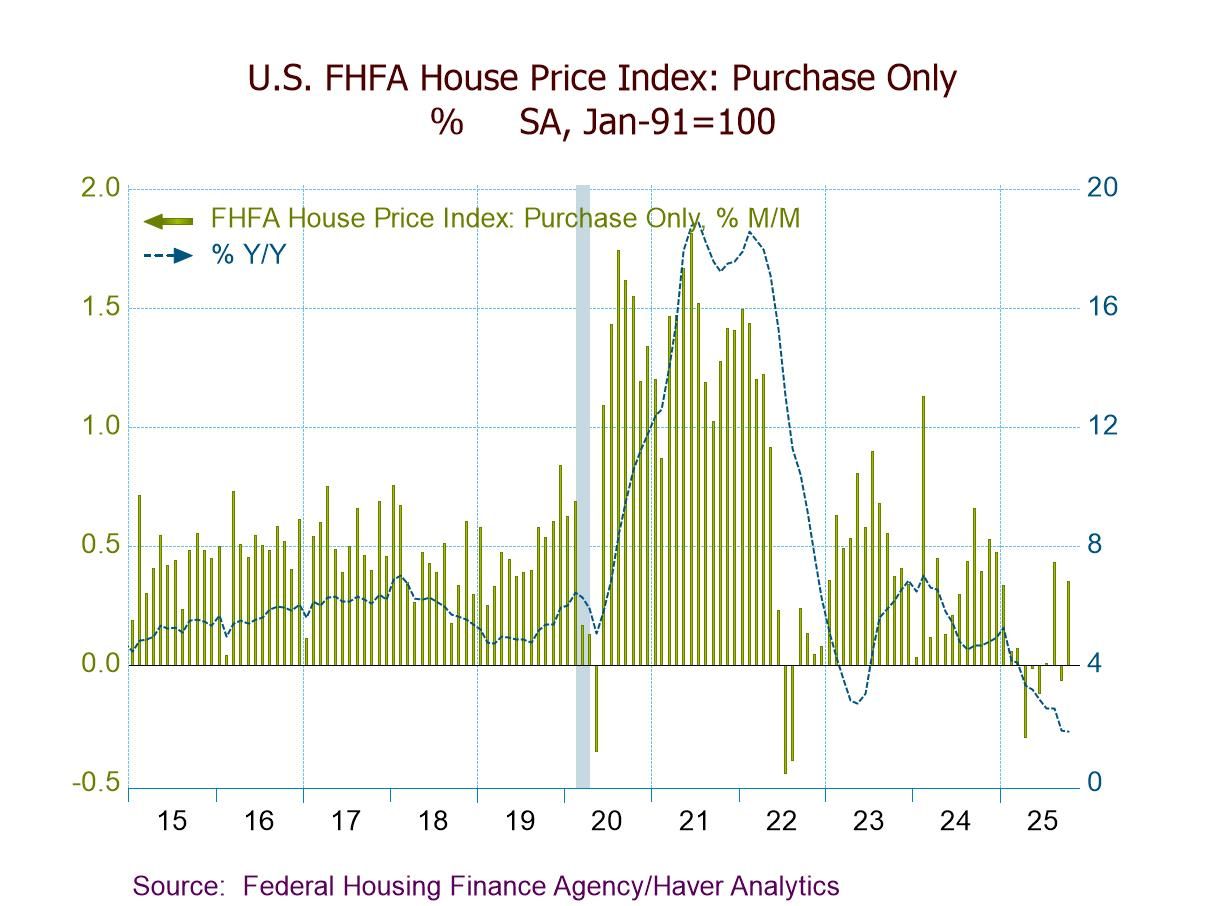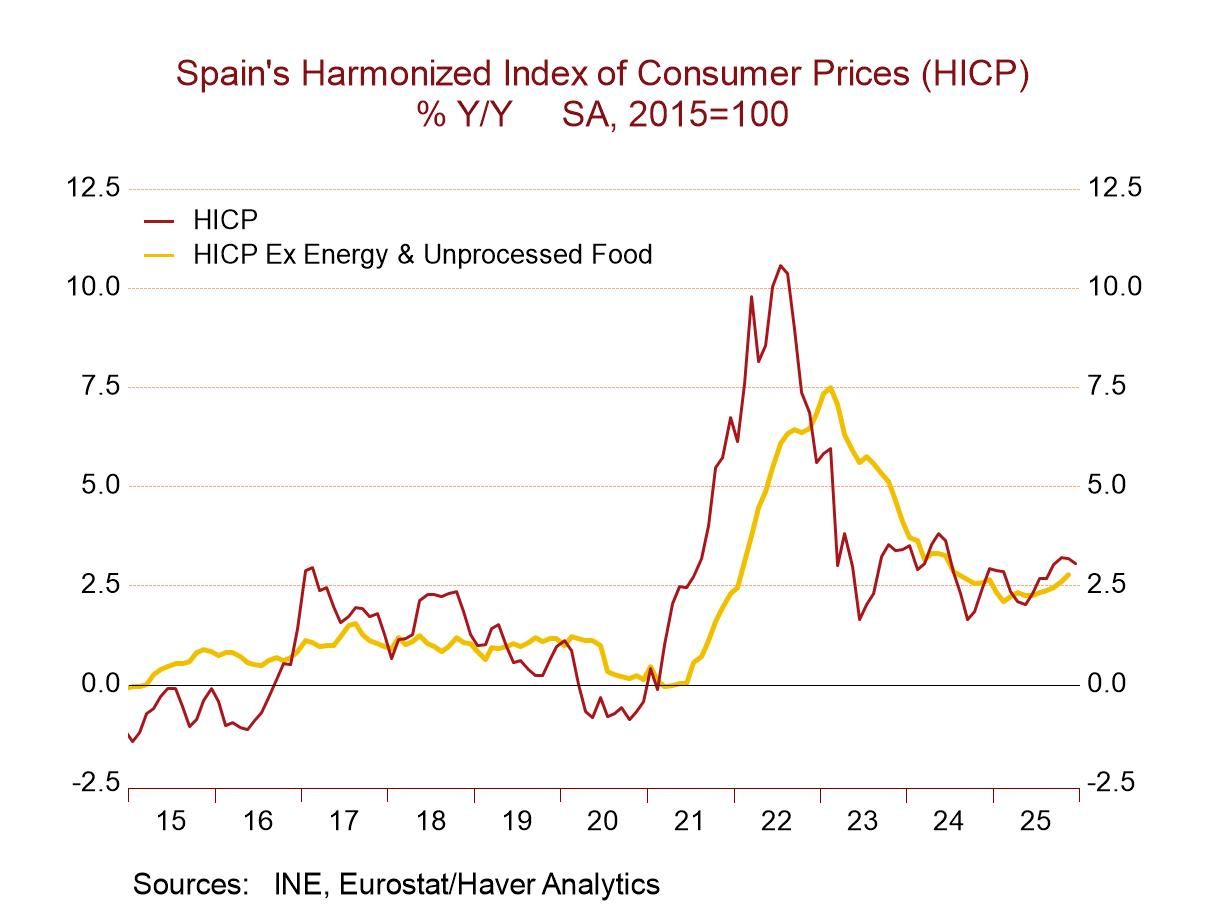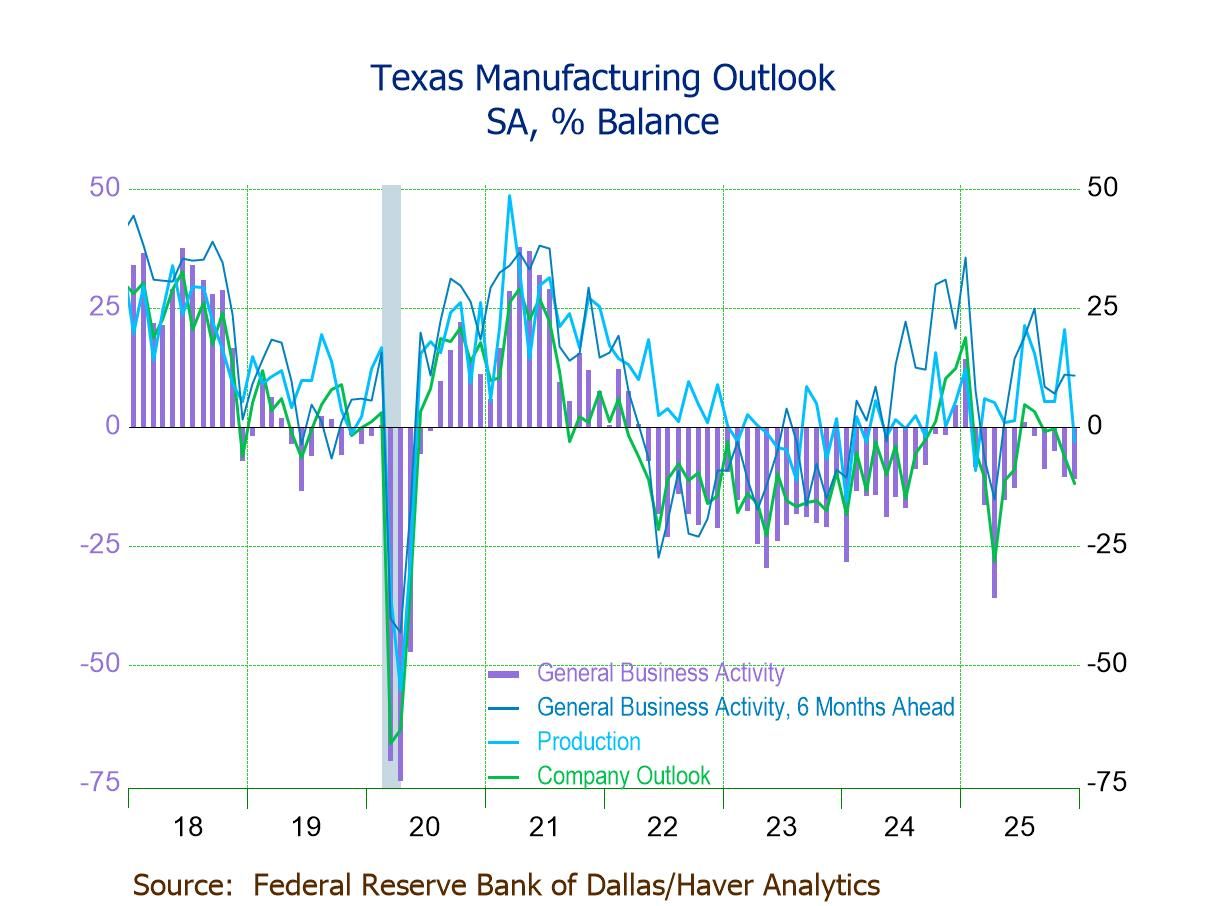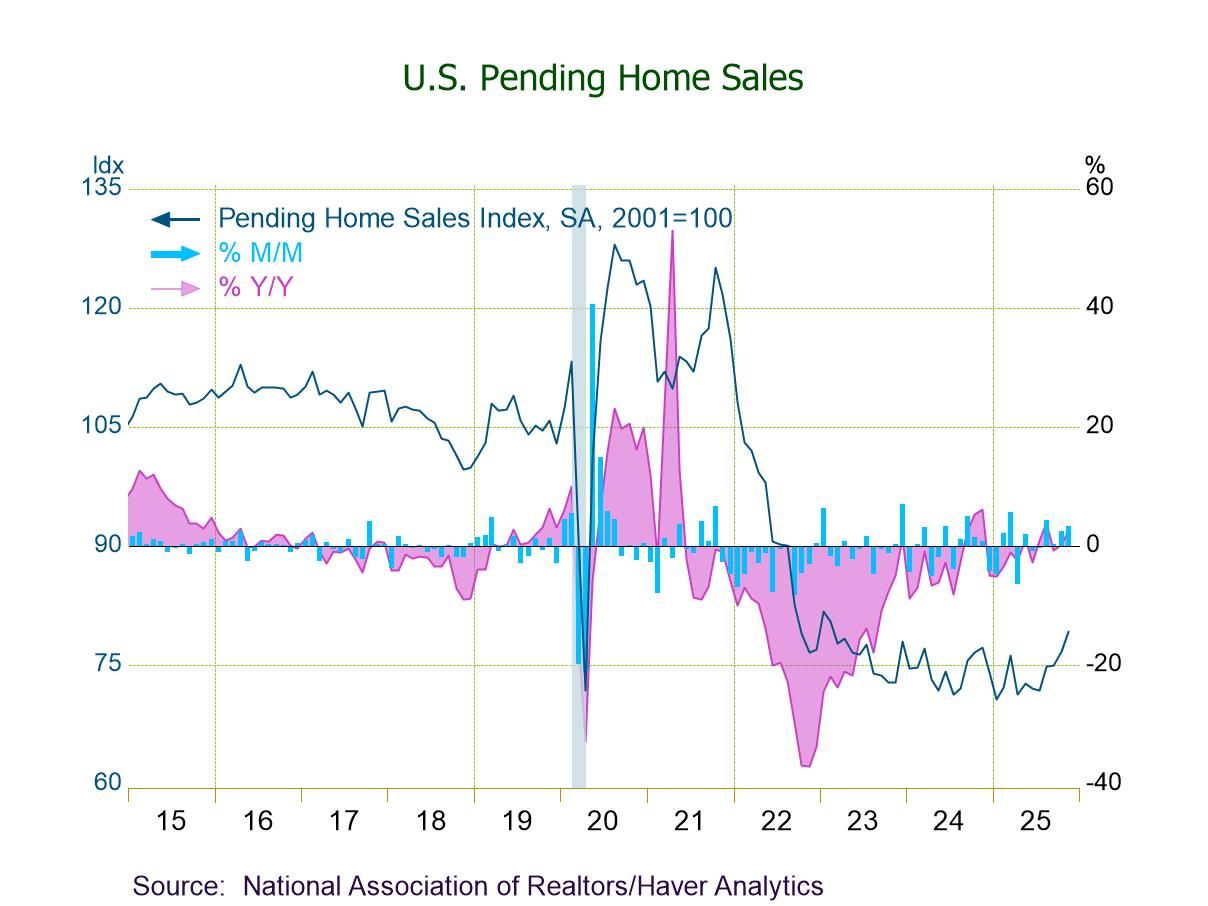 Global| Jul 26 2016
Global| Jul 26 2016U.S. Consumer Confidence Remains Steady
by:Tom Moeller
|in:Economy in Brief
Summary
The Conference Board's Consumer Confidence Index of 97.3 during July stayed close to 97.4 in June, revised from 98.0. The latest figure remained nearly the highest level since October and beat expectations for a decline to 96.0 in the [...]
The Conference Board's Consumer Confidence Index of 97.3 during July stayed close to 97.4 in June, revised from 98.0. The latest figure remained nearly the highest level since October and beat expectations for a decline to 96.0 in the Action Economics Forecast Survey. During the last ten years, there has been a 70% correlation between the level of confidence and the y/y change in real consumer spending.
By age group, confidence amongst respondents under age 35 reversed some of it June improvement, but remained up 25.2% versus 12 months earlier. Confidence amongst those aged 35-54 years rose to the highest level since October. Confidence amongst respondents over age 55 improved to the highest level in three months.
The present situations reading of confidence overall increased 1.5% (13.7% y/y) to 118.3, the highest level since September. The expectations figure eased 1.5% (+1.2% y/y) to 83.3, down from the January 2015 high of 97.0.
Details show that the present situation improvement reflected a jump in the perception that business conditions were good and stability in the view that jobs were plentiful. Jobs were seen as hard to get by a diminished 22.3% of respondents, the least since last August. The expectations figure declined due a drop in the perception that business conditions and income would improve. Expectations that there would be more jobs, however, held steady at the highest point in nine months.
Expectations for the inflation rate declined m/m to 4.7%, the lowest level since February. Higher interest rates were expected by 51.7% of respondents, remaining down sharply versus 72.6% in January.
Plans to buy a new home rose sharply to the highest level this year. Major appliance buying plans, however, remained stable. Intentions to buy a new car dropped sharply and reversed more than a year's improvement.
The Consumer Confidence data is available in Haver's CBDB database. The total indexes appear in USECON, and the market expectations are in AS1REPNA
| Conference Board (SA, 1985=100) | Jul | Jun | May | Y/Y % | 2015 | 2014 | 2013 |
|---|---|---|---|---|---|---|---|
| Consumer Confidence Index | 97.3 | 97.4 | 92.4 | 6.9 | 98.0 | 86.9 | 73.2 |
| Present Situation | 118.3 | 116.6 | 113.2 | 13.7 | 111.7 | 87.4 | 67.6 |
| Expectations | 83.3 | 84.6 | 78.5 | 1.2 | 88.8 | 86.6 | 77.0 |
| Consumer Confidence By Age Group | |||||||
| Under 35 Years | 122.8 | 132.3 | 110.3 | 25.2 | 116.0 | 106.6 | 93.1 |
| Aged 35-54 Years | 105.6 | 104.7 | 98.5 | 6.8 | 103.9 | 92.4 | 76.8 |
| Over 55 Years | 78.6 | 73.9 | 77.5 | -4.4 | 84.0 | 73.8 | 61.2 |
Tom Moeller
AuthorMore in Author Profile »Prior to joining Haver Analytics in 2000, Mr. Moeller worked as the Economist at Chancellor Capital Management from 1985 to 1999. There, he developed comprehensive economic forecasts and interpreted economic data for equity and fixed income portfolio managers. Also at Chancellor, Mr. Moeller worked as an equity analyst and was responsible for researching and rating companies in the economically sensitive automobile and housing industries for investment in Chancellor’s equity portfolio. Prior to joining Chancellor, Mr. Moeller was an Economist at Citibank from 1979 to 1984. He also analyzed pricing behavior in the metals industry for the Council on Wage and Price Stability in Washington, D.C. In 1999, Mr. Moeller received the award for most accurate forecast from the Forecasters' Club of New York. From 1990 to 1992 he was President of the New York Association for Business Economists. Mr. Moeller earned an M.B.A. in Finance from Fordham University, where he graduated in 1987. He holds a Bachelor of Arts in Economics from George Washington University.


